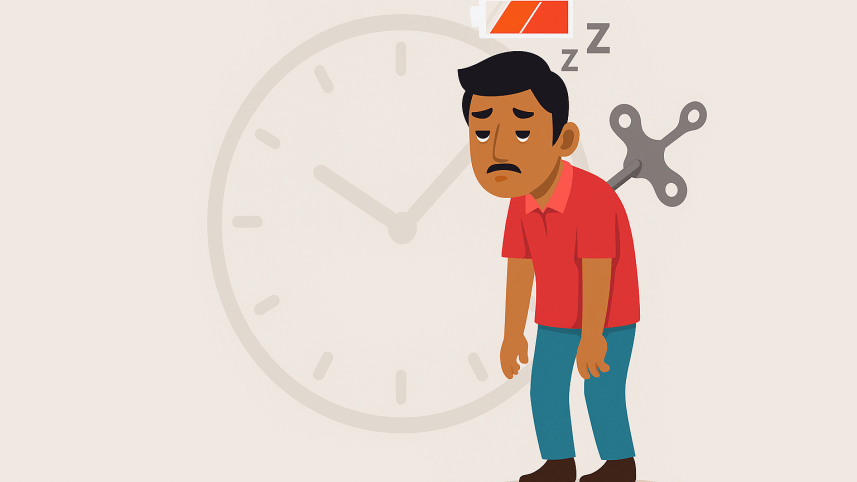Why skipping sleep is slowly breaking your health

As our days become hectic, we find ourselves clutching at minutes for ourselves. And when daylight hours are no longer enough, we turn to stealing time from the night. In this race to do it "all," we accumulate what is known as "sleep debt."
Sleep debt, or sleep deficit, is nothing but the difference between the amount of sleep you need and what you actually get. The "debt" occurs when you consistently get less sleep than you are supposed to.
It is, perhaps, one of the most important aspects of good health and well-being. Yet, sleep remains one of the most overlooked and undervalued parts of our lives. We often forgo our night hours for work, social life, hobbies, or simply to unwind. While these activities may seem rewarding in the short run, this forgone sleep has a cost.
According to nutrition and lifestyle coach Nayma Hasan, "Sleep debt is just like financial debt. If you keep borrowing hours from your rest, the interest shows up as fatigue, poor focus, and weakened immunity over time."
Some people here might object, stating that they do not feel tired after a short night's sleep. Well, this does not necessarily make them sleepless elites; it may just be the body's way of adapting to consistently less sleep. Perhaps, all the more dangerous, as the negative effects are not evident right away.
Regular sleep deprivation has negative effects, such as increased risk of diabetes, hypertension, heart disease, and stroke. It also leads to metabolic dysregulation and chronic weight gain. Prolonged sleep deficit leads to dull memory and hinders the brain's ability to process and store new information.
While some people truly need less sleep than others, scientists have concluded that every adult needs at least seven hours of sleep every night. The number of hours is slightly higher for children and teens.
How then can we ensure that we can avoid sleep debt and keep our sleep routine hygienic? Sleep journaling is one of the easiest ways one can keep track of their sleep and prioritise it over other activities. It also allows you to be flexible with your sleep routine without losing track of it altogether.
Ways to fight sleep debt
"To ensure good sleep, dim your lights in the evening or at least an hour before bedtime," advises Nayma. "Try to avoid screens 1–2 hours before bed. Even if you end up watching something, at least put the device in sleep mode."
Alternatively, one can create a relaxing nighttime routine to make them look forward to winding down for the day. This could mean a hot shower or bath, a relaxing skincare routine, some soft lighting and aromatherapy diffusers. For some bibliophiles, this would be the time to catch up with their reading.
Revisit your day to understand which habits might be costing you your sleep. It could be caffeine after 5 o'clock, lack of exercise, or even eating too late.
"Avoid eating too close to bedtime. After a busy day of work, many of us end up having dinner at 10 or 11 PM, which can be tough to change," warns Nayma. "My suggestion is to eat in smaller portions and balance your foods throughout the day."
Your bed must solely be used for sleeping. Working or eating on the bed can lead the brain into believing that it is a multipurpose space. Get rid of all things that may hinder your sleep from your bedroom, including work paraphernalia, devices, noise machines, music systems, even night lights and uncomfortable pillows or scratchy sheets.
Scientifically speaking, sleep debt is not recoverable. Having said that, short naps during the day to make up for lost sleep and sleeping in on weekends all work their bit to make us feel more alert and energetic, so catching up is never a bad idea. As the Irish say, a good laugh and a long sleep are the two best cures for anything!



 For all latest news, follow The Daily Star's Google News channel.
For all latest news, follow The Daily Star's Google News channel.
Comments